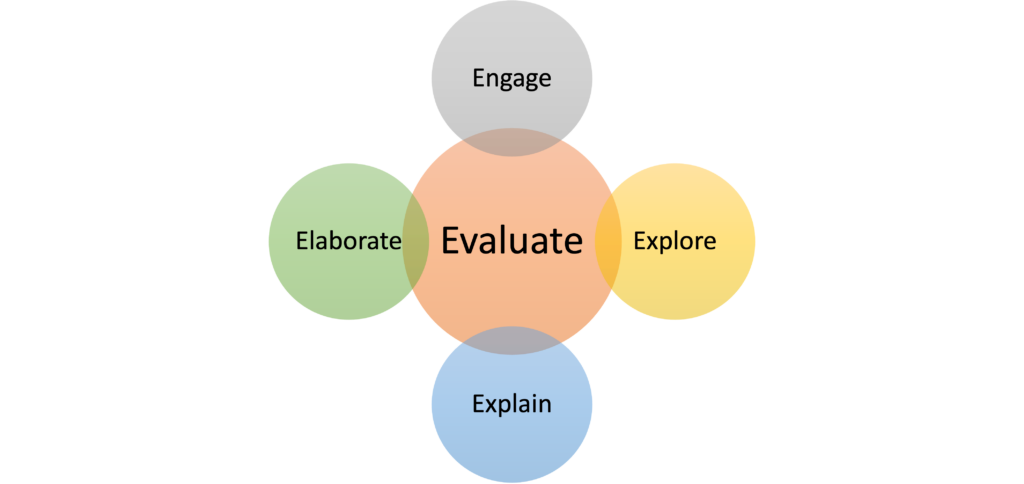Culturally relevant pedagogy (CRP) is an educational framework introduced by Ladson-Billings (1995) to incorporate culturally responsive teaching practices that acknowledge the students’ cultural backgrounds to support their academic success. CRP mainly includes three components including academic success, cultural competence, and sociopolitical consciousness. Academic success refers to the students’ intellectual growth as a result of the learning experiences, cultural competence is the development of their ethnic and social identities, and sociopolitical consciousness describes the ability to solve real-world problems that result from social inequalities.
Multiple authors have contributed to research on CRP over the years, and a conceptual framework of CRP teaching behaviors was proposed by Brown-Jeffy & Cooper (2011). The CRP teaching behaviors include five themes, including identity and achievement, equity and excellence, developmental appropriateness, teaching the whole child, and student-teacher relationships. Refer to the Figure for details of the five themes and its concepts for teaching.
Rightful presence is a critical justice framework that explores guest/host relationships, calling into question who has the right to be present within a space, how they are allowed to contribute, and who determines their role within the space (Calabrese Barton & Tan, 2019). In educational settings, Calabrese Barton and Tan have extended the concept of rightful presence into an educational framework to center political struggle, illuminate injustice, and disrupt power hierarchies within the classroom (2019; 2020). More than inclusion, rightful presence is the reauthoring of rights through practices that center students’ ways of knowing and their presence within classroom spaces. In particular, Calabrese Barton and Tan’s research in STEM classrooms has demonstrated how teachers can foster rightful presence practices within the classroom community, encompassing informal and formal practices that center political struggle, make injustices visible, and reauthor rights to redistribute power. We extend this work by understanding teachers’ perceptions of rightful presence within STEAM classrooms and exploring strategies that can be used to foster a classroom culture in which rights are reauthored to demonstrate students’ rightful presence in STEAM spaces. Our findings suggest that STEAM education may be an avenue through which teachers can foster a culture of rightful presence in their classrooms, reflecting “consequential learning” (Birmingham et al., 2017) and meaningful engagement with (reauthored) disciplinary knowledge in conjunction with a deep commitment to community.
See our recent blog post for more on Rightful Presence in STEAM: https://aaas-arise.org/2023/06/12/co-constructing-good-trouble-understanding-and-supporting-teacher-practices-for-rightful-presence-in-steam-classrooms/
Project-based Learning (PBL) is grounded in John Dewey’s constructivist perspective that students learn by investigating real-world, authentic problems, as they engage in experiential, hands-on, student-directed activities (Blumenfeld, et al. 1991). PBL supports the development of 21st century skills as students work in collaboration, and engage in problem-solving and decision-making skills, critical thinking, and inquiry (Bell, 2010). In a PBL lesson, relevant questions to drive the activities are presented in the lessons, followed by a series of artifacts and/or products that students propose as solutions. Teachers act as facilitators and scaffold students’ learning experiences by providing the necessary resources and feedback as needed.
The 5E Model of Instruction (Bybee & Landes, 1990) is an inquiry-based sequenced instructional model that places students at the center of learning and consists of five phases:
Engage, Explore, Explain, Elaborate, and Evaluate.
Engage: Teacher guides the students to engage in the new activity by making connections with their prior knowledge to explore the new topic.
Explore: Students explore the concepts through hands-on activities and share their observations and ideas with their classmates.
Explain: Teacher directs a whole-class discussion for students to share their understanding as well as raise questions about the concepts they have been exploring.
Elaborate: Students apply what they learned to form richer connections to the concepts.
Evaluate: Teachers use formal and informal assessments to assess student learning.
The five phases are iterative as needed throughout the learning activity. Each phase of the model functions to help teachers implement a conceptualized and coherent mode of instruction, and support students’ conceptual understanding of scientific ideas, knowledge, and skills (Bybee et al., 2006).

Bell, S. (2010). Project-based learning for the 21st century: Skills for the future. The Clearing House: A Journal of Educational Strategies, Issues and Ideas, 83(2), 39–43. https://doi.org/10.1080/00098650903505415
Birmingham, D., Calabrese Barton, A., McDaniel, A., Jones, J., Turner, C., & Rogers, A. (2017). “But the science we do here matters”: Youth‐authored cases of consequential learning. Science Education, 101(5), 818-844.
Blumenfeld, P. C., Soloway, E., Marx, R. W., Krajcik, J. S., Guzdial, M., & Palincsar, A. (1991). Motivating project-based learning: Sustaining the doing, supporting the learning. Educational Psychologist, 26(3-4), 369–398.
Brown-Jeffy, S., & Cooper, J. E. (2011). Toward a conceptual framework of culturally relevant pedagogy: An overview of the conceptual and theoretical literature. Teacher Education Quarterly, 38(1), 65-84.
Bybee, R. W., Taylor, J. A., Gardner, A., Van Scotter, P., Powell, J. C., Westbrook, A., & Landes, N. (2006). The BSCS 5E instructional model: Origins and effectiveness. Colorado Springs Co.: BSCS, 5, 88-98.
Calabrese Barton, A., & Tan, E. (2019). Designing for rightful presence in STEM: The role of making present practices. Journal of the Learning Sciences, 28(4-5), 616-658.
Calabrese Barton, A., & Tan, E. (2020). Beyond equity as inclusion: A framework of “rightful presence” for guiding justice-oriented studies in teaching and learning. Educational Researcher, 49(6), 433-440. https://doi.org/10.3102/0013189X20927363
Ladson-Billings, G. (1995). Toward a theory of culturally relevant pedagogy. American Educational Research Journal, 32(3), 465-491.
Georgia Institute of Technology
North Avenue
Atlanta, GA 30332
Ph: 404.894.2000
© 2024 Georgia Institute of Technology
Center of Education
Integrating Science Mathematics and Computing
505 10th St NW
Atlanta GA 30332-0282
https://ceismc.gatech.edu
Ph: 404-894-0777
Fx: 404-894-9675